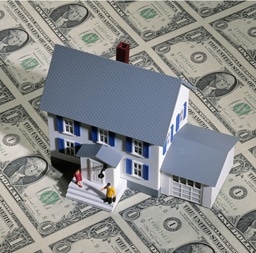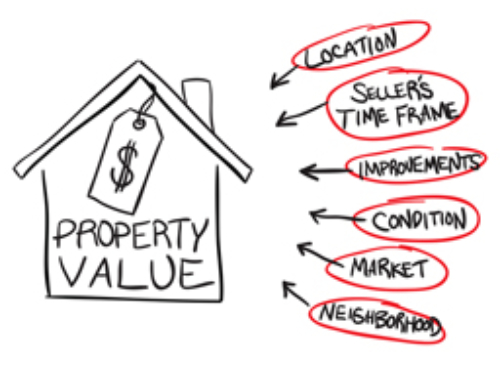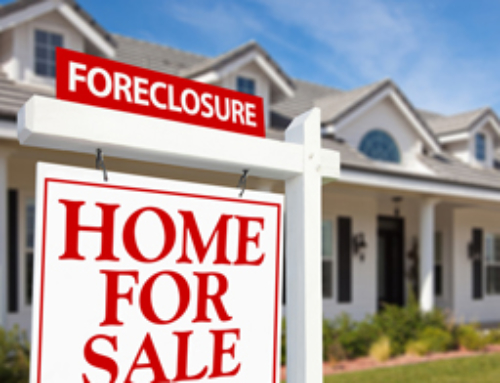 One of the editors in our office recently bought her first condo, and while I enjoyed walking her through the process of buying a home, I had to give her some advice along the way. While she was excited to find the perfect place and was eager to move in and start decorating her new home, I told her that she needed to put aside a sizeable amount of money for the closing settlement.
One of the editors in our office recently bought her first condo, and while I enjoyed walking her through the process of buying a home, I had to give her some advice along the way. While she was excited to find the perfect place and was eager to move in and start decorating her new home, I told her that she needed to put aside a sizeable amount of money for the closing settlement.
A common mistake for first-time homebuyers is forgetting that they need to have money saved for closing costs above and beyond the mortgage and down payment for the home. And remember that once you know the amount you need for your closing settlement, you’ll need to be prepared to come to the closing table with a cashier’s check issued by your bank or, in many cases, you might have to have the funds wired directly from your bank to the settlement agent.
Home Buying Closing Costs: What’s Included, What’s Not
Your mortgage lender, real estate agent, real estate attorney, or settlement agent should be in touch with you a few days before your closing settlement with the final amount of money you’ll need to close on a purchase of a home. However, in some cases, the call may come too close for comfort and may be as late as the night before your closing, so you should be prepared well in advance.
The home buying closing costs you might expect to see include:
Assignment fee: Your mortgage will probably be sold at some point in the lifetime of your loan, but if your lender sells it to another investor or institution immediately, you might have to pay a fee. The fee can be as small as $25, but it may be higher depending on the fees charged by the office that handles the recording of documents in your state.
Attorney fee: If you hire a real estate attorney to represent you in the purchase of a home, you may find one to represent you on a fixed fee basis. In some parts of the country, real estate attorneys charge a fee starting around $500, but in other parts of the country you may have to pay an hourly rate.
Delivery and email fees: This is one of those fees about which I get a lot of confused questions. Your title company or settlement agent may charge you a fee for sending and receiving documents from your lender. This fee may be small on its own, but you may see several of these fees at a closing. The settlement agent may charge this fee for receiving the documents sent by your lender along with a fee to send the documents back once you’ve signed them.
Flood certification fee: You’ll pay this fee to have your lender determine if your home is in a federally designated flood zone. If it is, your lender may require you to purchase flood insurance before agreeing to lend you money.
Home inspection: While you should have had your own inspector go through the home you are buying early in the home-buying process, this fee will be required by your lender to make sure a newly built home has been completed. Your lender won’t want to fund your purchase unless it has sent someone out to actually see the home and make sure it’s ready for closing. This fee might be between $75 and $200, depending on the type of new home you’re buying.
Lender’s appraisal fee: The lender wants to make sure your property is worth at least as much as what it is lending you. The appraisal fee will vary, depending on the value of the property. In higher-value homes, you may find a lender requiring two appraisals, and you may be required to pay for both of them. Depending on the state in which you are located, the appraisal fee could be as low as $300 and as high as $700.
Lender’s credit report: Your lender will probably pull your credit report a few times during the loan application process to make sure your financial situation hasn’t changed. Expect to pay $10 to $100 per credit report for each person that has applied for the loan.
Lender’s document preparation fees: The document preparation fee is a charge the lender bills you to assemble and create the documents for your closing. Ever since settlement agents and lenders unbundled their fees, lenders have labeled their services and collected a fee for each. Expect to pay between $50 and $600.
Lender’s insurance escrow: The lender wants to protect its investment, so it wants to make sure the property you are buying is insured and remains insured as long as the it has a loan on the property. If you buy the insurance for your home in advance of the settlement closing and you show proof of your insurance coverage and payment, you may still have to pay a fee. In this case, you may owe the lender one-sixth of the cost for the policy to make sure that over the next year it can collect enough money from you to pay the insurance bill when it comes due a year later. If you didn’t pay for the insurance policy in advance, you’ll have to come to the closing settlement with the funds to pay for your insurance as well. While you’ll need to have these funds at settlement, these are still expenses that you would incur through the closing or later.
Lender’s tax escrow: In some states, the amount the lender requires of a buyer may be substantial. You need to make sure you know whether you have a real estate escrow in place well in advance of the closing to prepare yourself for the amount that you’ll need to have ready. In some states—and depending on the timing of the real estate tax bills—you may receive money from the seller for bills that come due after the closing if they cover the time the seller owned the property. Like with homeowner’s insurance, the lender will probably require a lump sum deposit from you to the escrow account at closing settlement.
Lender’s underwriting fees: The lender charges this fee for the underwriting department to give its final review to your loan. This may be charged in addition to a loan-processing fee, but the fact is that you’ll have to pay these fees for the privilege of taking out a mortgage. Your lender will find one way or another to charge you for certain fees relating to your loan and the closing.
Loan processing fee: This fee will compensate the lender for the cost of processing your loan. It may range from $100 to $750.
Mortgage point and loan origination fee: The origination fees are tied to the total cost of your loan and can run up to about 3 percent of your loan. If you pay a point, you should be getting a reduction of your mortgage interest rate. Whether you pay points or origination fees may be up to you. If you decide to obtain a loan with a lower-than-market interest rate, you may agree to pay points to lower your interest rate or buy down the rate.
Notary and other fees: Depending on your state, your mortgage paperwork may have to be reviewed and signed by a notary public. The notary public may charge a fee to witness your signature and verify it on the closing documents.
Prepaid interest on the loan: Usually a lender will bill you in advance for the interest on your loan from the day your loan closes to the end of the month. If you close early in the month, the amount will be larger; if you close near the end of the month, the amount will be smaller. This amount will be tied to the interest rate on your loan.
Recording fees for deed or mortgage: You’ll receive title to your home in the form of a legal document, and this document will need to be recorded with your county recorder of deeds. The mortgage will need to be recorded as well. The recording fee will vary from state to state, but you should expect to pay at least $100. Additionally, in some states, there is a mortgage tax that is based on the amount of the mortgage. For example, if the mortgage tax is 1 percent and your mortgage loan is for $250,000, the tax will be $250 to record the document.
Title company or closing agent fee: This closing fee, which is separate from the cost of a title insurance policy, can run from $200 to $2,500 or more depending on the value of the home and the value of the mortgage you are obtaining. It is paid to the title company or closing agent to work through the paperwork for the closing and to represent your lender in the settlement of your loan.
Title insurance for the buyer: If you choose to buy a buyer’s policy, and I absolutely think you should, the cost will run $150 to $1,000 or more, depending on the price of the home. If you only buy a lender’s title policy and then someone makes a title claim to the property and you lose the house, only the lender will get a check. Plus, if you have equity in the home, that equity will not be protected now or in the future. You need to buy a separate owner’s policy so that you will be fully compensated in this sort of situation.
Title insurance for the lender: Expect to pay $150 to $1,000 or more, based on the dollar amount of the house you purchase. In some parts of the country, the seller picks up most or all of the cost of the owner’s title insurance policy and the buyer will pay the charges associated with obtaining title insurance for the lender. Some states have title insurance rates set by the state that are non-negotiable. In other states, the fees are negotiable. You would be wise to determine whether you can negotiate the rates with the title insurance company.
Transfer tax and municipal inspection fees: You may have to pay taxes to your local city, town, village, county, or state to transfer the title of the property. These charges vary from municipality to municipality, and they are usually either a flat fee or are based on the sales price of the house. For example, in Chicago, the buyer picks up the city transfer tax—a hefty $3.75 per $500 of sales. The range generally runs from nothing at all to $10 per $1,000 of sales price or more, depending on the jurisdiction. In some parts of the country, municipalities have enacted ordinances that force the seller or the buyer to have the local building inspector come out to the home and perform an inspection. That inspection fee may have to be paid in advance of the closing, but, in other cases, you may see the fee at the closing table.
Additional fees for condo or co-op purchases
If you’re buying in a condo or co-op building, you may be subject to additional charges beyond those listed above. Ask to see the association rules and by-laws to find out what you might expect to pay at closing. These fees could include:
- Condo move-in fee
- Association transfer fee
- Co-op apartment fee
- Credit check by condo or co-op association board
Don’t let this list scare you away from purchasing a home. Not all of these fees will be included in every purchase, and a good mortgage broker and real estate lawyer will walk you through what to expect at the closing table. Start out with the disclosure documents you’re given so that you’ll have a good approximation of the costs and expenses you’ll end up seeing.
As I told the young woman in my office, it’s better to have too much money at the closing table than not enough.
READ MORE:
Buyer’s Market Q & A with Real Estate Expert Ilyce Glink
Housing Market Predictions-Why Aren’t People Buying Houses?
Housing Market Predictions—A Triple Dip in Home Prices?
Home Maintenance Checklist for the Fall
Money Management Tips: When Celebrities Make Money Mistakes
Home Buying: The Low Down on No Down Payment Mortgages
Ilyce Glink is a best-selling author, real estate columnist, and web series host. She is the founder and CEO of Think Glink Media and the managing editor of the Equifax Finance Blog. Follow her on Twitter: @Glink.





